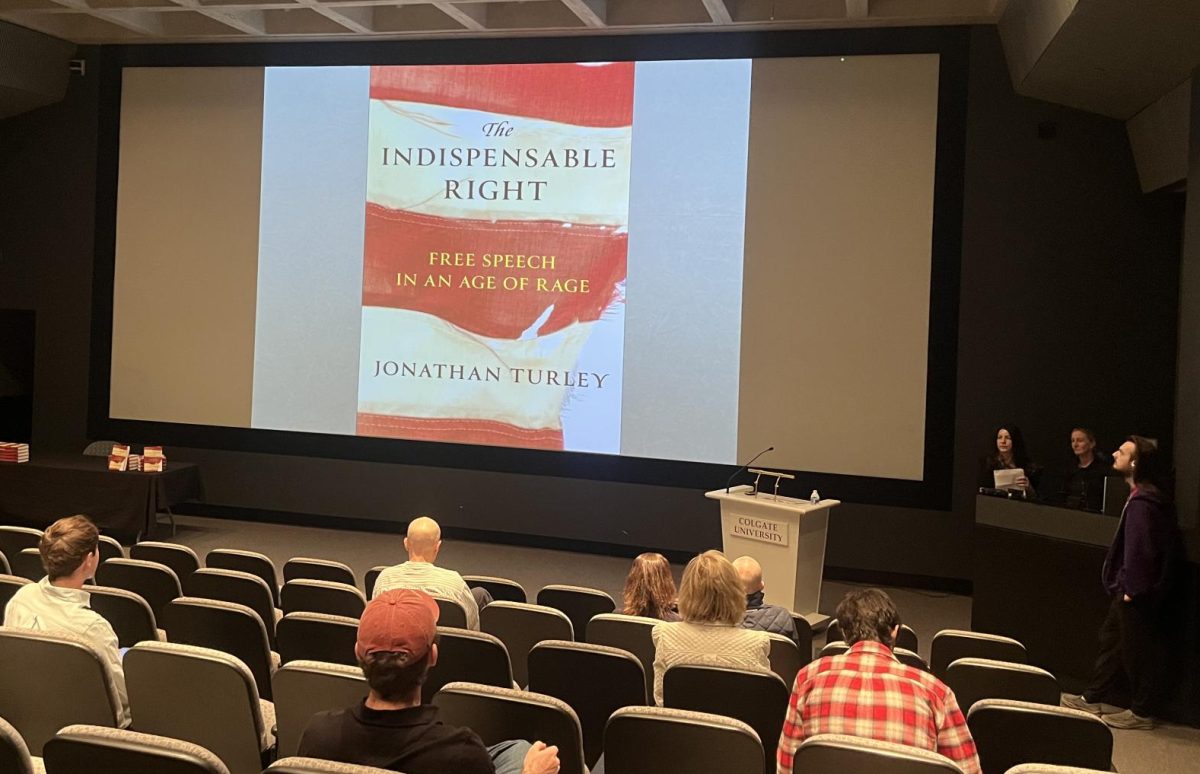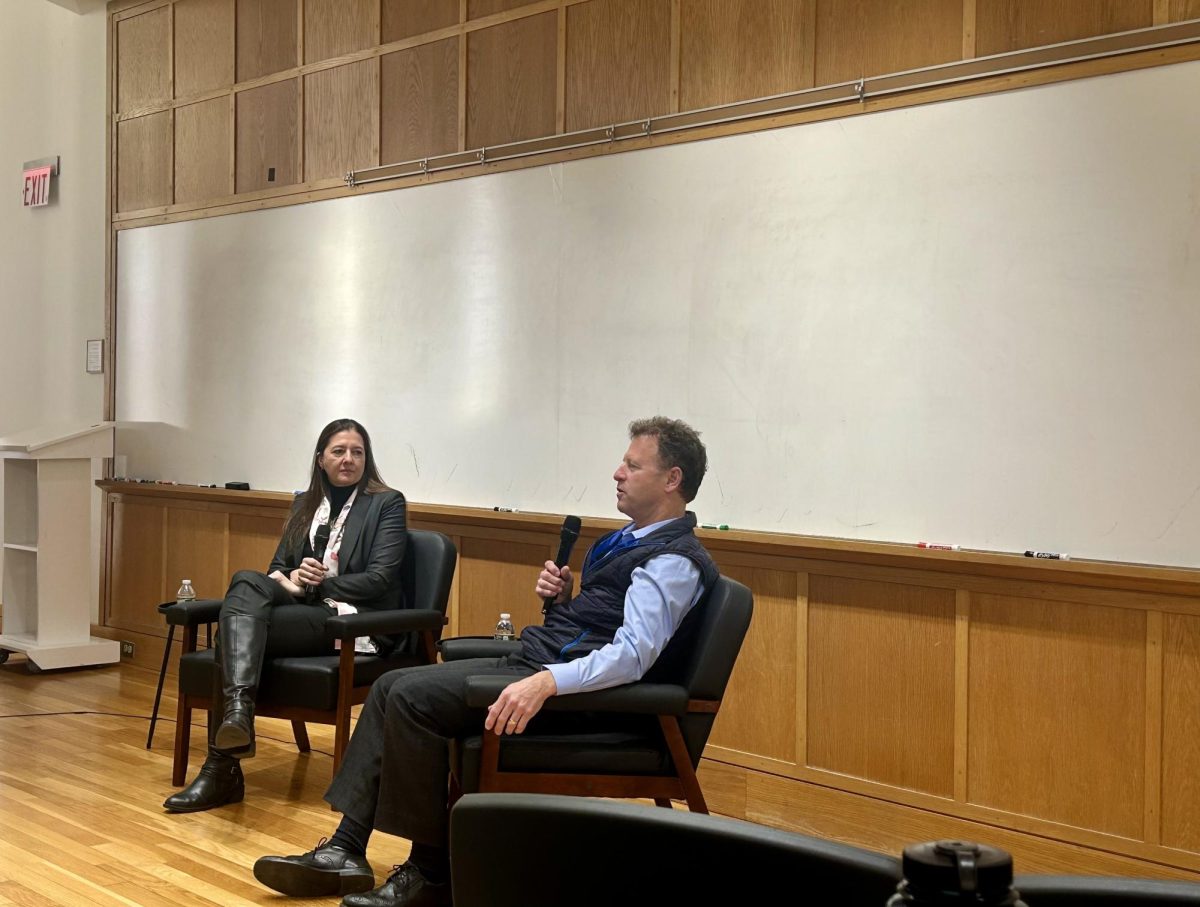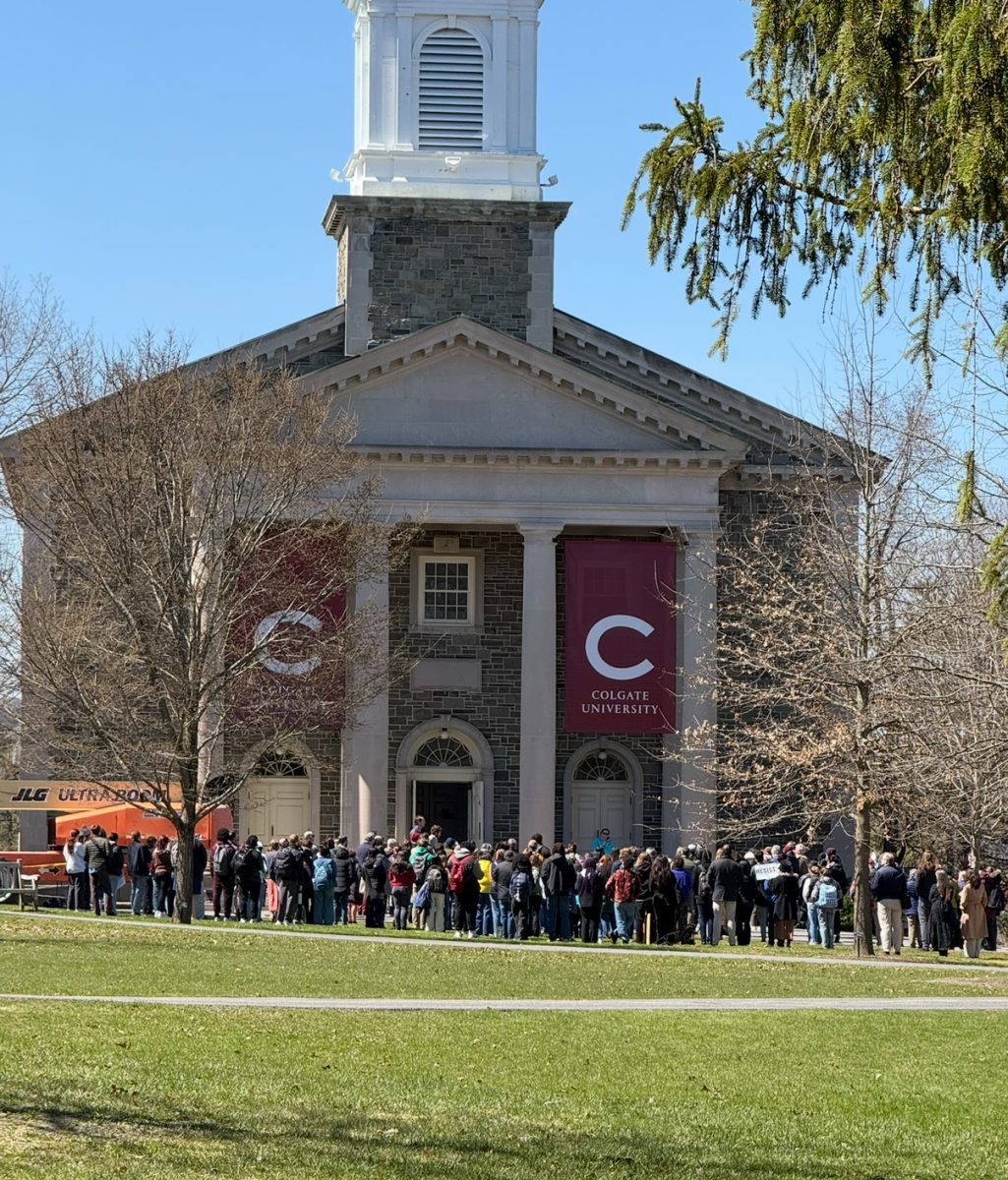Colgate University’s Center for Freedom and Western Civilization hosted lawyer and Professor of Public Interest Law at George Washington University Law School Jonathan Turley for a discussion of his book “The Indispensable Right: Free Speech in an Age of Rage” on Tuesday, April 22. With a focus on free speech, Turley has a prolific career as a lawyer and legal commentator with highlights that include serving as an expert witness in both the Clinton and Trump impeachment hearings. Turley’s new book focuses on the evolution of government protections or violations of the First Amendment right to free speech.
Carolyn Guile, associate professor of art and co-director of the Center for Freedom and Western Civilization, introduced Turley at the event.
“In this book, Professor Turley argues that free speech is a human right and it’s something that we need in order to be fully human,” Guile said.
This focus on the necessity of freedom of speech was present throughout the entire lecture. Turley began his talk by explaining the title of his new book, which he has worked on for the past 30 years.
“You’ll notice the book’s subtitle — it says an age of rage, not the age of rage. And the reason is that this is not our first and it will not be our last,” Turley said. “What people don’t like to admit about rage is that it’s something of a license to say or do things that you would not ordinarily say or do.”
Turley’s focus was not only on how people use free speech but also on how governments try to limit the right in society. The next concept he discussed was “state rage,” or when governments penalize rage in speech. Here, Turley focused on the U.S.’s history of arresting protestors, a right protected under the First Amendment.
“The greatest danger of rage is not the speech itself — what I call ‘rage rhetoric,’” Turley said. “It’s when rage rhetoric becomes state rage. It’s when the government uses the rage in speech to limit, curtail and arrest the people who use it.”
Turley introduced the concept of “uncomfortable people,” those who speak up even when told not to, while discussing government opposition to protestors. This concept stood out to attendees, including junior Bayard Young.
“Turley praised being an ‘uncomfortable person,’ someone who stands firm for their beliefs, regardless of opposition,” Young said. “I left the lecture empowered to continue being an ‘uncomfortable person’ who fearlessly speaks my mind.”
In his continued exploration of the First Amendment, Turley spoke to its unique role in the history of the founding of the U.S.
“The fact is that the American Revolution had one singular revolutionary moment that is unmatched, and that is what we said ultimately about free speech,” Turley said. “There was no precedent for what they said in the First Amendment.”
Turley also explored how previous systems that tried to limit free speech have never had success and claimed they have a “perfect” fail rate. Instead of preventing “bad speech,” censorship systems only push movements underground and allow them to victimize themselves, as in the case of today’s Germany.
“When I look at the news, I see thousands of skinheads and neo-Nazis marching through your streets,” Turley said. “They’re having banner years, but there was a poll that showed that only 17% of German citizens feel free to express themselves in public. 17% — you silenced the wrong people, as you always do. That’s what censorship does.”
Before going into a Q&A session, Turley ended his lecture by exploring how citizens can use their freedom of speech to change society for the better. Turley used the example of “Pandora’s box” — while people often focus on the horrors that come out, hope is the last thing to escape and is often forgotten.
“Yeah, we’re going to tear each other apart, but there’s a hope about humanity — that we actually can be better than who we are,” Turley said. “We’re defined by free speech. We’re defined by the hope that, just maybe, with the help of free speech, we might be able to overcome the things that we hate most about each other.”
Turley’s lecture presented both a comprehensive overview of his book, available for attendees after the event, and the history of the right to free speech in the U.S.
















